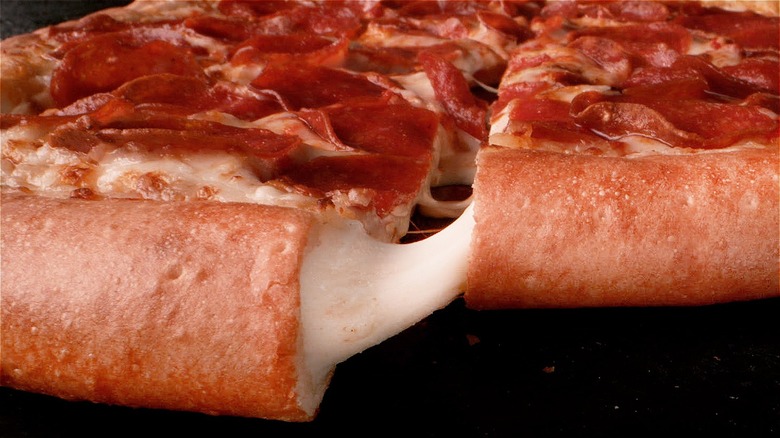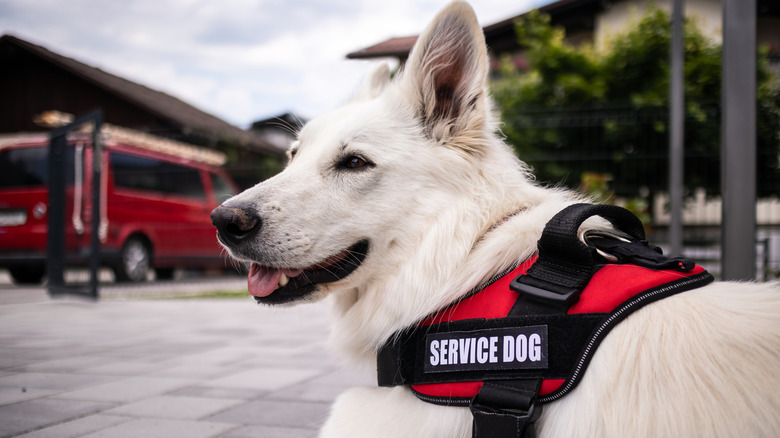Lawsuit Claims Papa Johns Discriminated Against Blind Employee
Papa Johns notes in its Code of Ethics and Business Conduct that "everyone belongs." Touting principles of "Diversity, Equity, Inclusion, and Teamwork," the company claims goals of doing the right thing and putting people first – including "team member focus." A recent lawsuit claiming employee discrimination puts those ideas in the spotlight. The U.S. Equal Employment Opportunity Commission (EEOC) is exposing what it considers glaring disability discrimination. The lawsuit filing came from the EEOC itself in response to the alleged violation of a legally blind employee's rights.
It's not the first time Papa Johns has faced a discrimination lawsuit involving an employee with a disability. In 2017, the EEOC filed suit against the company after a Farmington, Utah, location fired Scott Bonn, a worker with Down syndrome. Bonn was terminated because he performed tasks with the aid of a job coach, who was unaffiliated with the company. To settle the suit, the restaurant owners would have to pay Bonn $125,000, provide additional HR and managerial training, launch a new recruitment initiative for potential employees with disabilities, and reevaluate their employment policies.
This new EEOC lawsuit, filed six years later, on March 15, 2023, swings attention back to the popular pizza chain and its accountability to workplace discrimination policies.
Workplace disabilities and accommodations
The current lawsuit involves Michael Barnes, who was hired at a Papa Johns restaurant in Athens, Georgia. Because he is legally blind, Barnes uses a service dog to help him travel. However, he was reportedly denied a request to have the animal accompany him to work. His employment was also terminated, allegedly constituting at least two violations of the Americans with Disabilities Act of 1990 (ADA). According to the EEOC, the ADA prohibits firing employees based on disability. The law also bars them from failing to provide equal employment opportunities or reasonable accommodations for functioning in the workplace.
Though employers have some discretion in approving requests for accommodations, including service dogs, as in the case of Barnes, they must justify denials. The EEOC claims that the animal would have been restricted from food prep areas and customers and that Papa Johns failed to provide adequate justifications for its decision, instead citing an unspecified "health and safety risk."
The EEOC suit is asking for "backpay, reinstatement or front pay, compensatory damages, and punitive damages for Barnes as well as injunctive relief to prevent future discrimination." In a statement provided to HR Dive, the company reiterates its pledge to uphold diversity and inclusion and reaffirms compliance with ADA accommodation requirements, "unless undue hardship would result." But it's probably worth noting that Katherine Slye-Griffin from the U.S. Health Resources and Services Administration previously told HR Dive, "The bar ... is really high" for prohibiting service animals in workplace environments, even in food-related ones like cafeterias.

